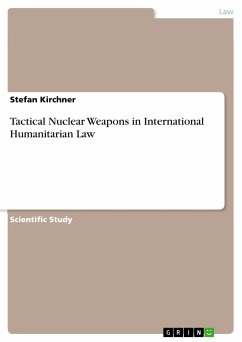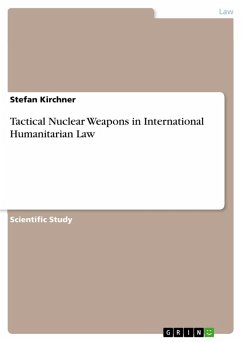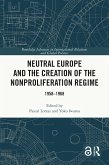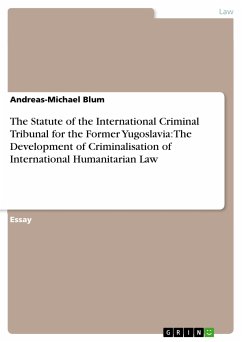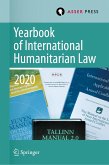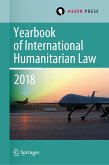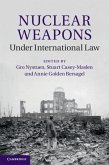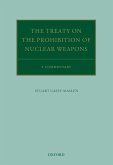Scientific Study from the year 2015 in the subject Law - European and International Law, Intellectual Properties, , language: English, abstract: This article examines the legality of tactical nuclear weapons under International Humanitarian Law. Additionally, the ideas behind the development of tactical nuclear weapons as well as their historical background during the Cold War and after 9/11 are examined. Tactical (or 'small') nuclear weapons have been developed during the Cold War and had been deployed e.g. to West Germany for possible use on the battlefield in the event of a Soviet invasion of Western Europe. After the end of the Cold War, the dangerous idea that nuclear weapons could be used on the battlefield without triggering a global thermonuclear conflict has remained relevant. It has been discussed e.g. in the context of the threat posed by the Iranian nuclear weapons program as one possible way to destroy hardened or underground targets. In this paper the issue of tactical nuclear weapons is approached from the perspective of International Humanitarian Law, the set of rules which govern the conduct of armed forces in conflict.
Bitte wählen Sie Ihr Anliegen aus.
Rechnungen
Retourenschein anfordern
Bestellstatus
Storno

